Winterising our garden
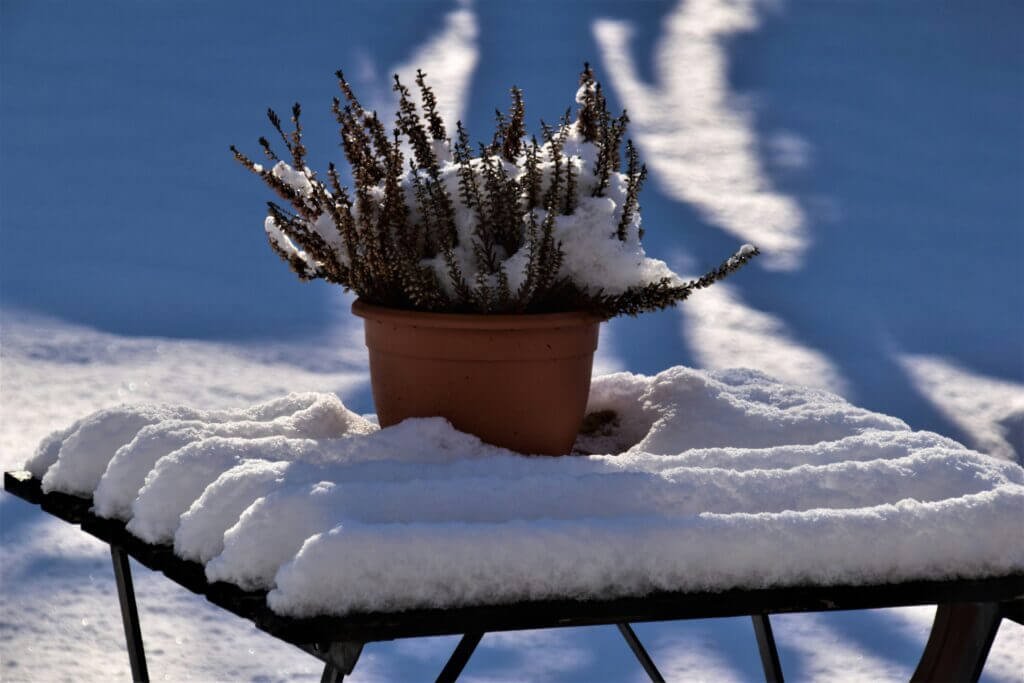
With the onset of November, the weather became cooler and slightly colder. It's important to prepare your garden for the winter. It's not just the winter protect our plants from the weatherbut also to lay the foundations for the spring.
1. Planting Mediterranean plants in a protected area
Leander, geraniums, geraniums, fuchsias, ivy, marigolds, foxgloves and citrus are sensitive to cold, so they should be overwintered in a sheltered, frost-free place. These plants should be moved into a bright but cool room (such as an unheated garage or cellar) before the first frosts. The optimum temperature for them is around 5-10°C.

Before we bring in the plants:
Before planting check them for pests and remove any diseased, withered parts if necessary. Watering should be reduced considerably, as the plants are dormant at this time and need little water. Even bulbs, tubers and rhizomes of frost-sensitive plants such as canna, calla lilies, dahlias and sword flowers that are planted in the open air should be carefully picked up, cleaned of soil, allowed to dry and stored in sand or woodchips in a cool, dry place.
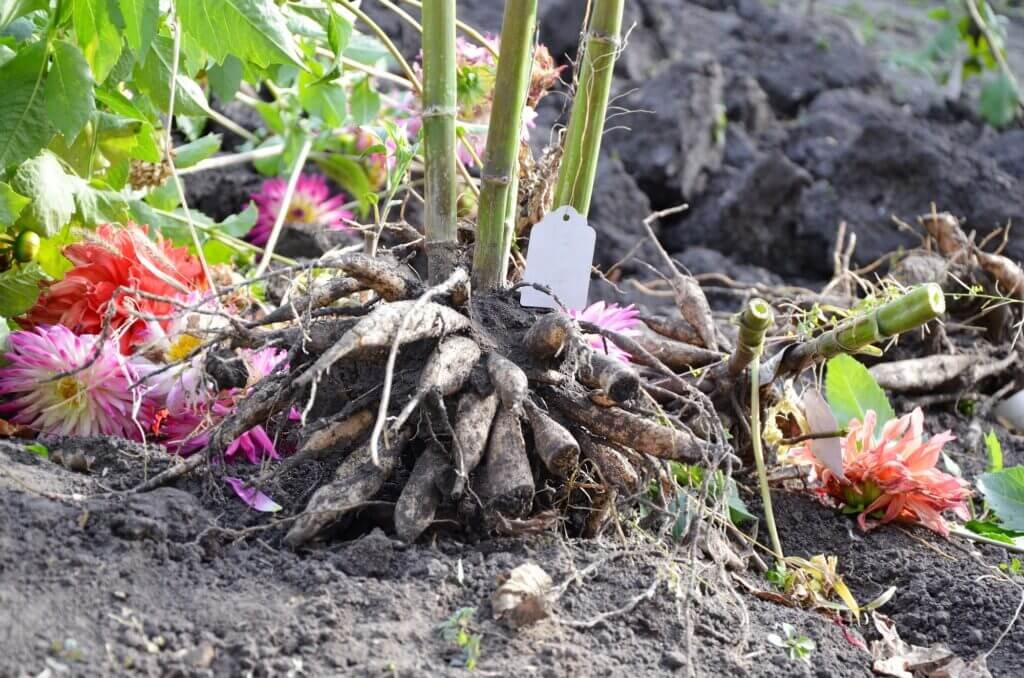
Allow the bulbs and tubers to dry and store them in a cool, dry place in sand or woodchips.
2. Covering frost-tolerant plants with mulch
Plants that are frost-tolerant but still sensitive to cold should be covered. Examples include the stems of roses, young shrubs, evergreens and the root zones of young trees. Natural mulching is a great way to stabilise soil temperature, protect the root zone and retain moisture.
For mulching, you can use straw, bark or mulch that is spread in a thick layer of about 5-10 cm around the plants. It is important that the mulch does not come into direct contact with the stems of the plant, as this can cause rot. Mulch helps maintain soil temperature and protects the roots from sudden temperature fluctuations.
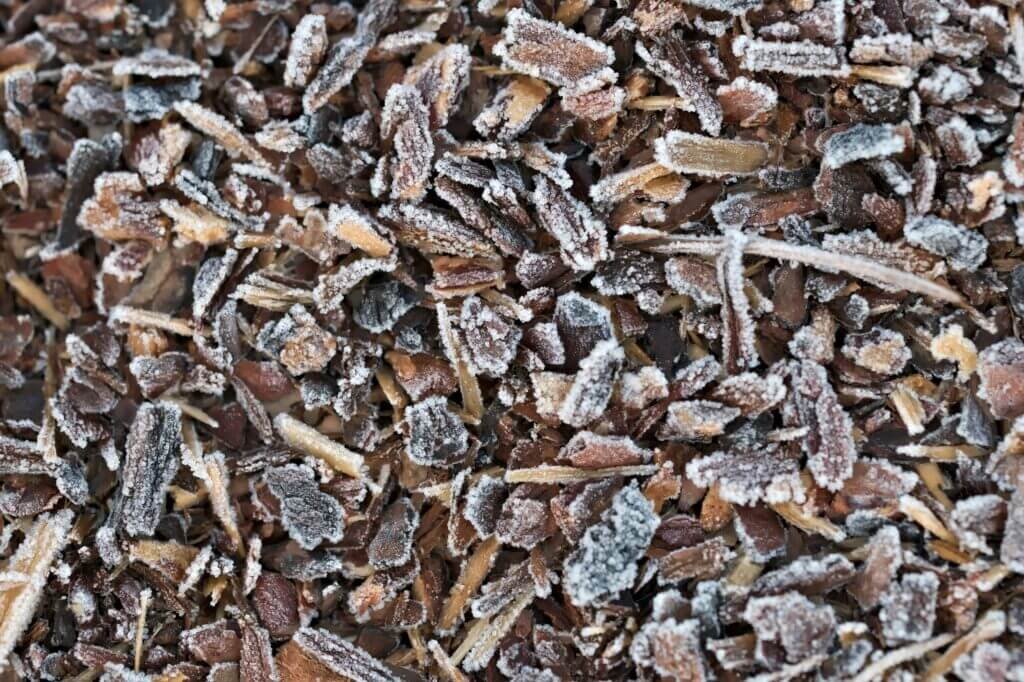
Mulch also has the added benefit of decomposing over time and providing nutrients to the soil, which helps plants to grow in the spring. Natural ground cover also contributes to maintaining the ecological balance of the soil.
Young figs and pomegranates should be covered with a suitable breathable material (jute bags, geotextile) like a tent in addition to mulching. If it is likely to be very cold, it is also worth piling up straw and dry leaves under the jute bags to help protect the young shoots from frost damage.
3. Preparing the kitchen garden for winter
When winterizing a vegetable garden, it is important to prepare the soil in the beds for the next season. Dead plant parts should be cut off and put on the compost. Leaving the roots in the soil will loosen the soil and, as they decompose, provide organic matter for future years.

If we have not sown mulch plants before the frosts, we shouldn't leave our garden bare. If possible, spread mulch on the beds in 5-10 cm layers, which also provides protection against frost and wind erosion.
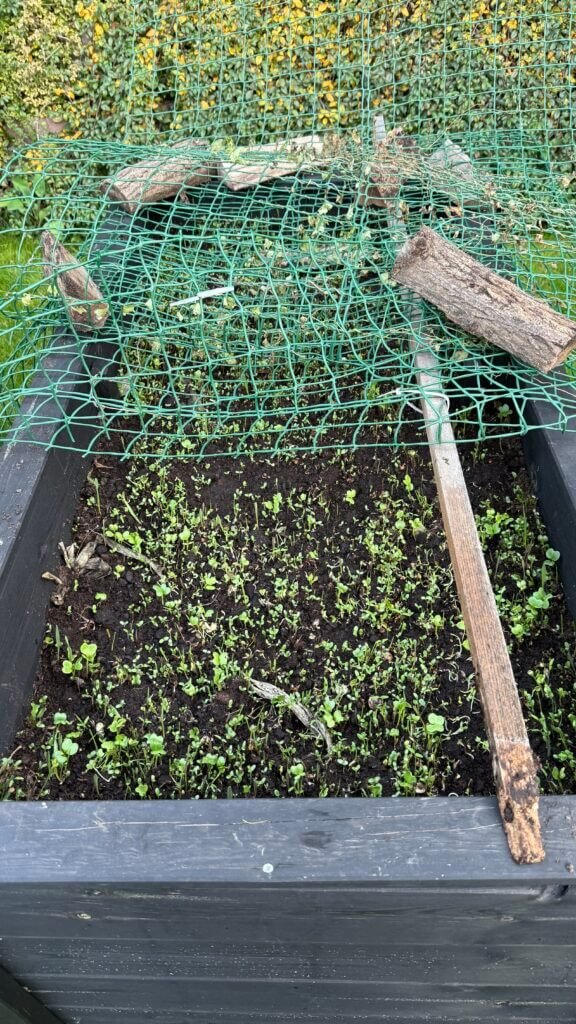
Danuba Garden Soil cover with mycorrhizal fungi
Bird feeders - winter essentials
The winter garden also includes a bird feeder. Before you start bird feeding, get information from an authoritative source - the website of the Hungarian Ornithological and Nature Conservation Society - on how to do it right. As you can read there, the main aim is not to keep birds alive, but to attract them to your garden. This can be doubly beneficial. On the one hand, it is an eye-catching sight when the feeder and its surroundings are full of birds, and on the other hand, if we get them used to it, they will help us with biological control.
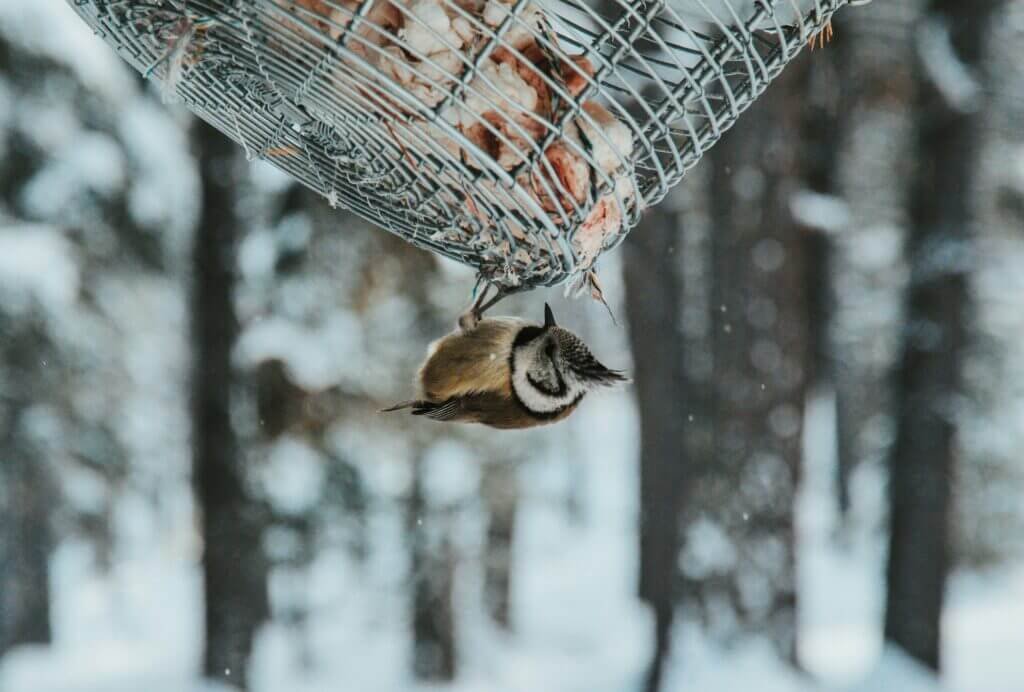
Danuba Garden technology
The frost tolerance of plants can be increased by Asco Alga and DanuVital Bio + products, if weather conditions allow spraying and we still have green foliage









